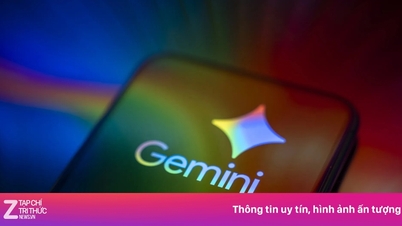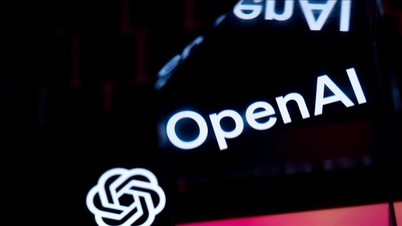
There's Still a Way to Train AI Without Sharing User Data
In the digital age, personal data is the "fuel" for AI development. But from there, a paradox appears: the more AI understands humans, the more vulnerable we are to "scrutinization".
Information leaks, overly personalized advertising, and non-transparent data collection practices have made users increasingly wary of "handing over" their data to platforms.
In that context, the technology community started looking for a way for AI to still learn without collecting private data, and that is Federated Learning.
How AI learns without seeing data
Unlike the traditional training model, all data such as messages, images, or usage habits must be sent to the server for AI to learn. This makes many people worried because personal data can be collected or leaked.
With Federated Learning, the process is reversed: the learning happens right on your device, like your phone. The AI just "observes" how you type or use the app to draw its own learning experience, without sending actual data to the server.
The phone then sends only a summary of the learned results (in the form of numbers or mathematical formulas) to the central system for synthesis.
Imagine this: millions of phones sharing “learning experiences” instead of “work assignments.” The AI keeps getting smarter, but your private data never leaves your phone.
In 2017, Google introduced Federated Learning to Gboard, the default Android keyboard, so the app can learn how you type, predict your next word, and correct spelling mistakes without sending messages back to its servers.
Not stopping there, Federated Learning also opens up great potential in the medical field. Instead of collecting patient data, which is limited by strict regulations such as HIPAA (USA) or GDPR (Europe), hospitals can train diagnostic models together without sharing real records.
The NVIDIA-initiated EXAM (2020) project is a prime example: more than 20 global hospitals jointly trained a system to predict COVID-19 patient conditions without exchanging any personal data.
Not only Google, but also Apple (applied in Siri and QuickType keyboard), Meta (with the FLUTE testing platform), along with financial institutions such as WeBank or Ant Group, and many leading universities such as Stanford, MIT are also researching or deploying Federated Learning. This technology is expected to become the new standard for AI systems that respect users' privacy.
The key to fair and transparent AI
Training on millions of devices with diverse configurations, unstable connections, and limited battery capacity creates many challenges in terms of learning speed and accuracy. In addition, the risk of reverse model attacks also forces developers to combine Federated Learning with other security technologies such as homomorphic encryption or differential privacy.
AI is getting better at knowing you, but Federated Learning offers hope for changing the way we interact with technology. Instead of AI passively collecting data, AI now learns directly on your device without needing access to actual personal data.
This not only protects privacy, but also creates a new partnership between humans and AI where AI accompanies and learns with you, rather than invading your privacy.
Around the world , many companies and researchers are pursuing this goal. Federated Learning is expected to become the key to a transparent, fair and user-respecting AI future where AI actually learns "with" you, instead of "knowing too much" about you.
Source: https://tuoitre.vn/cong-nghe-moi-giup-ai-hoc-cung-chu-khong-soi-du-lieu-nguoi-dung-20251008164916799.htm


![[Photo] 60th Anniversary of the Founding of the Vietnam Association of Photographic Artists](/_next/image?url=https%3A%2F%2Fvphoto.vietnam.vn%2Fthumb%2F1200x675%2Fvietnam%2Fresource%2FIMAGE%2F2025%2F12%2F05%2F1764935864512_a1-bnd-0841-9740-jpg.webp&w=3840&q=75)
![[Photo] National Assembly Chairman Tran Thanh Man attends the VinFuture 2025 Award Ceremony](/_next/image?url=https%3A%2F%2Fvphoto.vietnam.vn%2Fthumb%2F1200x675%2Fvietnam%2Fresource%2FIMAGE%2F2025%2F12%2F05%2F1764951162416_2628509768338816493-6995-jpg.webp&w=3840&q=75)














































































































Comment (0)